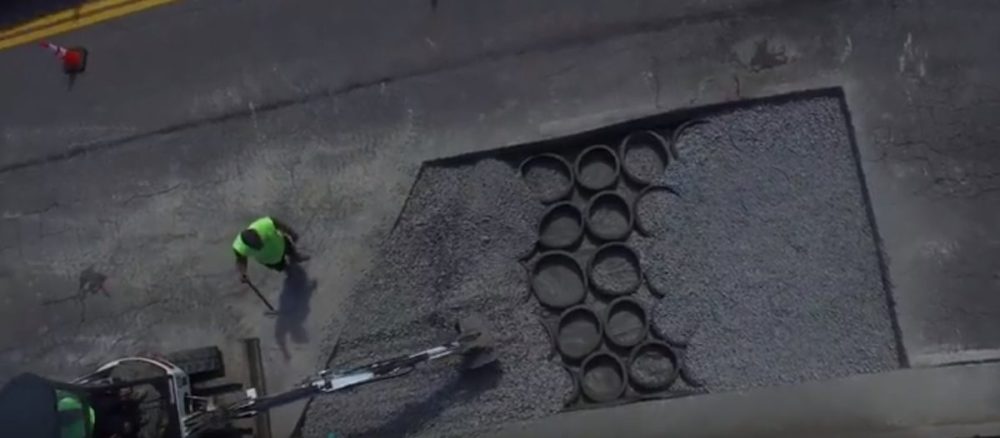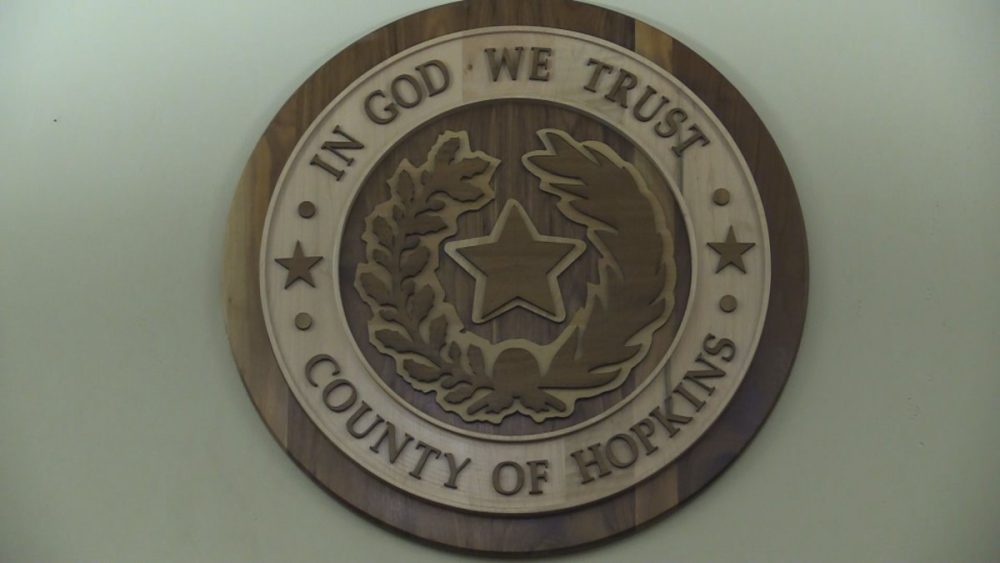Inter-local Agreement To Be Presented To Sulphur Springs City Council in November
Hopkins County Commissioners Court Monday agreed Monday to partner with the City of Sulphur Springs to re-use parts of scrap tires utilizing the process called mechanical concrete to help improve some city and county roads.
Essentially, the county will collect scrap automobile and light truck tires at regular intervals, approximately twice a month. The scrap tire generator would pay the county a $1 per tire disposal fee, according to the agreement approved by the Commissioners Court.
Inmates from Hopkins County jail would remove the sidewalls from tires on Houston Street by the jail, using a $4,500 tire ring removal device purchased and jointly owned by both the city and county.
The tire rings would then be used in road rebuilding to help stabilize the road bases, a process called mechanical concrete. Ideally, it will save money in the rebuilding process, help stabilize and extend the life of some roads, while helping to get rid of scrap tires as well, according to city and county officials.
Mechanical concrete serves as a good road base, especially if there’s not much on top such as asphalt or concrete, which are designed to keep water out to keep the road base from eroding. With mechanical concrete, that’s not an issue; it holds up even with water, according to Sulphur Springs City Manager Marc Maxwell.
One of the prime roads considered by both entities for use of mechanical concrete, if all parties involved agree, is Pipeline Road. Of course thousands of tire cylinders would be needed for a project like that, Maxwell and Commissioners Court members noted.
Maxwell said the road repair process on Pipeline would not be repaired with paving right off. The mechanical concrete would be used to stabilize the road, opening it up enough so that it’d be passable if say an ambulance needed to use it to shave a few minutes off its response time.
Maxwell said that a smaller road, one in Precinct 3 that is low and often has water crossing it following a downpour, would likely be used to test the mechanical concrete process.
The city would not use the process for every city street that is rebuilt, but it could provide a suitable base for a street that’s not asphalt or concrete paved and has a bar ditch, Maxwell said.

The cylinders would be stored at a city site. The sidewalls would be disposed of in roll-off trash containers provided by the city, according to the agreement.
The initial length for the agreement, as approved by the Commissioner Court, would be 1 year. Initially, the proposal was for 5 years, however, until the process is tested, it was recommended that the agreement be for one year. However, the agreement would be automatically renewed from year to year unless terminated earlier by either the city or county, the document approved by the county states.
The scrap tire generator would pay the county a $1 per tire disposal fee, which would be used to pay licensing fees for the patented mechanical concrete process, disposal of sidewalls and for jailers to supervise trusties.
While the Commissioners Court unanimously approved the inter-local agreement with the city, the proposed agreement will still have to be presented to and approved by Sulphur Springs City Council, County Judge Robert Newsom pointed out Monday.
Sulphur Springs City Manager Marc Maxwell said the agreement seems like a reasonable one and he anticipates an agreement to be present to the City Council at their regular November meeting for consideration.






